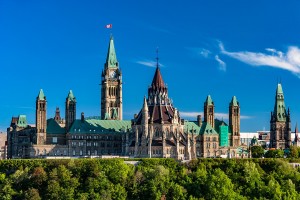Clean Energy Canada | Fossil fuels are the path to an unaffordable future, not carbon pricing
April 1, 2022

VICTORIA — Mark Zacharias, special advisor at Clean Energy Canada, made the following statement in response to the scheduled April 1 federal carbon price increase from $40 to $50 per tonne of emissions:
“Today’s carbon price is a step forward for one of the most important policies driving Canada’s shift to clean energy, and that shift will ultimately make life more affordable for Canadians.
“While the increase will add just over 2 cents a litre to the price of gasoline, changing global geopolitics and supply constraints have recently driven gas prices up 50 cents a litre in some regions. The best way to benefit the bank accounts of Canadian families is to switch to technologies that reduce or avoid fossil fuels altogether.
“Indeed, many of the most successful carbon-cutting technologies save money as well as reduce emissions, from heat pumps to more energy efficient appliances to electric vehicles. Additionally, many of these solutions are eligible for government grants or incentives that make them more affordable and accessible.
“Under the federal government’s carbon price, most Canadians receive more money back than they pay. But reducing your carbon footprint doesn’t reduce your rebate amount, meaning carbon pricing still effectively encourages you to adopt a cleaner, more affordable lifestyle.
“A Clean Energy Canada report released yesterday compared the whole ownership costs of equivalent gas and electric cars—from purchasing to refuelling to maintenance—and found that EV versions always end up cheaper than their gas counterparts, despite their higher sticker price. For four of the six car comparisons performed, the ownership cost savings of going electric ranged from $15,000 to over $19,000.
“And let’s not forget that the status quo isn’t a viable option. The price is already high: billions in damage from extreme weather events, increases in food prices and rising healthcare costs. The less we do, the bigger it gets.
“In short, far from being another line item on an ever-expanding bill, Canada’s pollution-cutting policies—like carbon pricing—are key to protecting Canadian wallets from the volatility of fossil fuels and the havoc of climate change.”
KEY FACTS
- A rising carbon price is essential to Canada meeting its 2030 climate target.
- The International Energy Agency’s World Energy Outlook 2021 found that, under current global policies, average household energy bills in advanced economies would decline between 2020 and 2050. Under a scenario where governments introduce policies to reach net zero by 2050, bills would decline even further.
- Since Canada’s carbon price was introduced in 2019, crude oil prices have been responsible for 72% of the increase in gas prices, according to analysis from the Canadian Centre for Policy Alternatives. This is nearly six times the impact of the carbon levy.
- Roughly 80% of Canadians are open to buying an EV for their next vehicle, according to a poll by Clean Energy Canada and Abacus Data.
- 51% of Canadians say they will never buy a gas-powered vehicle again, while 61% say rising gas prices and oil supply challenges have convinced them that it is time to buy an EV, according to a recent poll by KPMG.
- It costs between $5 and $13 to completely charge a 416-kilometre-range 2022 Chevy Bolt, depending on which Canadian province you live in.
- The cost of weather-related disasters is increasing in Canada. Insured losses due to extreme weather events totalled over $18 billion between 2010 and 2019, according to the Canadian Climate Institute.
- The total cost of recovering from B.C.’s catastrophic flood last fall—likely Canada’s costliest natural disaster to date—is nearing $9 billion, according to analysis from the Globe and Mail.
- Canada’s 2020 Food Price Report, produced by Dalhousie University and the University of Guelph, called climate change “the elephant in the room” when it comes to food prices, citing issues such as unpredictable crop yields and pest and disease outbreaks.
- Modelling conducted by the Canadian Climate Institute showed that air pollution alone could cost $86 billion a year in deaths and loss of quality-of-life by 2050.
RESOURCES
Report | The True Cost
Media Brief | What does net zero mean for household energy prices?
Poll | Almost 80% of Canadians open to owning an electric vehicle